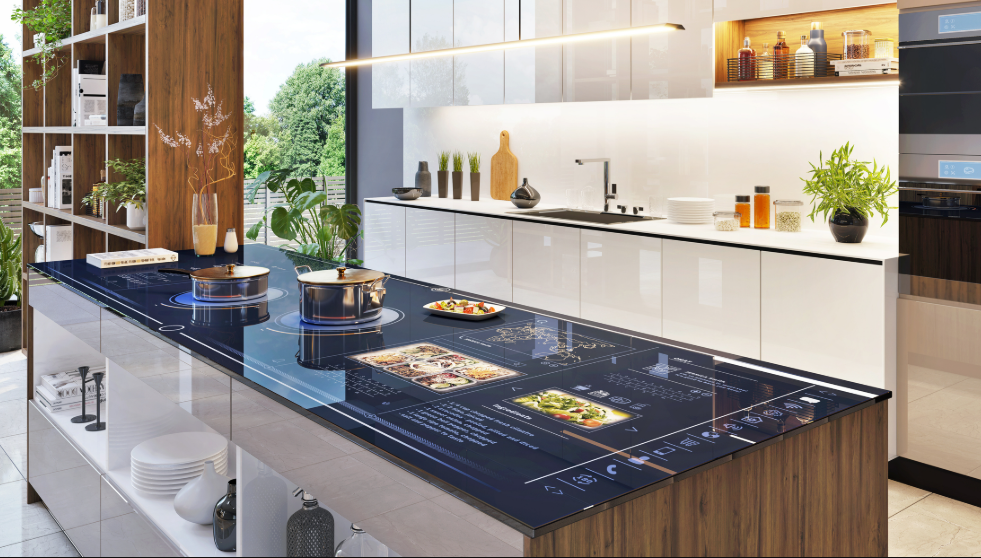Innovations In The Smart Kitchen

Introduction To Modern Culinary Technology
The evolution of technology has touched every aspect of daily life, and the kitchen is no exception. In recent years, the concept of a smart kitchen has gained immense popularity. By combining modern appliances, artificial intelligence, and the Internet of Things, households are transforming cooking spaces into efficient, connected, and intelligent environments. This development not only enhances convenience but also improves safety, sustainability, and the overall culinary experience.
Defining The Smart Kitchen
A smart kitchen refers to a cooking environment that integrates technology into appliances and systems, allowing users to manage tasks more effectively. From ovens that can be controlled via mobile apps to refrigerators that track expiration dates, these kitchens rely on connectivity and automation. The primary goal is to reduce manual effort, optimize energy usage, and provide a seamless cooking experience.
Key Features Of A Smart Kitchen
Modern smart kitchens are equipped with several unique features that distinguish them from traditional setups.
- Connected appliances such as ovens, dishwashers, and coffee makers that can be managed remotely.
- Voice-controlled systems integrated with platforms like Alexa or Google Assistant.
- Energy-efficient designs that monitor usage and reduce waste.
- Inventory management where refrigerators remind users about low supplies or spoiled food.
- Safety enhancements like automatic shut-off for stoves and smoke detection alerts.
The Role Of Artificial Intelligence In Cooking
Artificial intelligence plays a critical role in advancing the smart kitchen. AI-powered appliances can suggest recipes based on available ingredients, adjust cooking times, and even monitor food through built-in cameras. These systems are constantly learning user preferences, ensuring that meals are tailored to taste and dietary requirements.
Sustainability And Smart Kitchens
A major advantage of this innovation is sustainability. Appliances designed for smart kitchens typically consume less energy and water compared to traditional devices. For example, dishwashers can optimize water flow, while induction cooktops reduce unnecessary heat loss. Additionally, refrigerators with smart sensors help households cut down on food waste by notifying users about expiry dates and unused ingredients.
See also: Unlock Learning Potential with At-Home Tutoring in Fremont
Convenience And Lifestyle Improvement
The smart kitchen offers unmatched convenience. Imagine starting your oven while commuting home or asking your smart assistant to brew coffee as you wake up. These innovations save time and reduce stress, making cooking an enjoyable and streamlined process. Families with busy schedules especially benefit from the automation and connectivity offered by smart appliances.
Challenges Faced By Smart Kitchen Technology
Despite its advantages, the adoption of smart kitchens also comes with challenges. High initial costs may discourage some households from investing in connected appliances. Additionally, security concerns related to connected devices remain a major issue, as hackers can potentially access personal data through smart home networks. Another concern is compatibility, as not all appliances work seamlessly with every system.
The Future Of Culinary Innovation
Looking ahead, the smart kitchen is expected to become an essential part of modern homes. Innovations such as robotic chefs, AI-driven nutrition planners, and fully automated grocery management systems are already under development. As costs decrease and accessibility improves, these features will become standard, creating a new era of household convenience.
Impact On The Food And Beverage Industry
The rise of smart kitchens is not limited to households; the food and beverage industry is also being transformed. Restaurants are increasingly adopting automated cooking systems and smart inventory management to improve efficiency. Food delivery services are exploring integration with smart appliances, allowing meals to be heated automatically upon delivery. This interconnected approach enhances customer experience and reduces operational costs.
Encouraging Broader Adoption
For widespread adoption of smart kitchens, manufacturers, governments, and organizations must work together. Offering affordable financing options, raising awareness about energy savings, and ensuring secure networks will encourage more households to invest in these systems. Non-profit organizations and environmental groups can also promote the ecological benefits of reducing waste and energy consumption through smarter technology.
Conclusion
The smart kitchen represents a significant shift in the way households and industries approach food preparation. By integrating artificial intelligence, automation, and sustainability, it brings efficiency, safety, and convenience to everyday life. While challenges such as affordability and security remain, the long-term benefits are undeniable. As technology continues to advance, smart kitchens will become the standard, revolutionizing how people cook, eat, and live.






